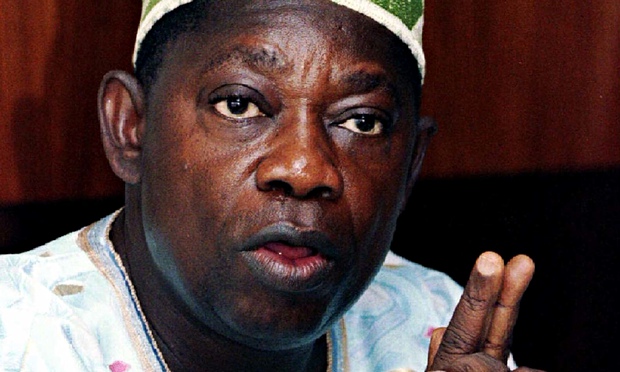So then, the rising political heat in the populace and in the media in the South West are all early and mild pangs of a perceived stillbirth. People are genuinely afraid that their political investment in Buhari in 2015 and 2019 may not yield the ultimate dividend—a Yoruba president in 2023—after all.
If the fear of perceived betrayal is justified, and it is justified, the manner of reaction to it is not. Politics is a game whose middle name is betrayal. And for that reason, any political project should have a plan B that could achieve the same results or similar. Still, this manner of reaction to the tides of national politics is not new in the South West. It is, as we noted last week, the collective tendency to retreat home when things don’t go as planned at the centre is one of the three constants in the region’s politics. It happened in the First Republic with devastating consequences at home and beyond. It was repeated during 1979-1983, yet again in 1993, and at various moments since 1999.
- ‘How I grew my poultry farm to 120,000 birds’
- Tunde Bakare: This is not the Nigeria I planned with Buhari
But the most consequential of these withdrawals to the regional domain after a failed attempt to control Nigeria’s political centre is that which followed the so-called aborted Third Republic, even if those of the 1950s and 60s were considerably more violent. It is in the 1990s, I believe, that the seeds of what we are witnessing in the South West today, and what we may likely witness on the uncertain road towards 2023, were planted.
In 1993, the late politician and businessman, Chief M.K.O. Abiola appeared to have succeeded where Chief Ladoke Akintola before him had not. Though a Yoruba man, he tried to build a political bridge from the South West across both of Nigeria’s major rivers to the north and the east alike. This was a first in Nigerian politics in its own right. To the north, in particular, his bridge was cemented by several things that were unique to him and to the political period in which he and others constructed it.
First of all, Abiola was a Muslim, and this provided him with a cultural connection to a region where religious faith matters to culture as much as it does to politics. Second, unlike most Yoruba politicians of the first, second and even third republics, Abiola was never a scion of the Awolowo political family. This meant that he did not have the baggage of old feuds, rivalries and suspicions to smoothen over with partners across the rest of the country. Third, there were only two parties in the Third Republic, which automatically widened the geopolitical reach of any candidate beyond specific regional, religious and ethnic boundaries within the country.
Moreover, although he was one of Nigeria’s richest men at the time, Abiola appeared committed to the ideology of social democracy, which bore his party’s name, and was reinforced by his reputation as a populist and philanthropist. This connected him to most of Nigeria’s poor—the real voters—regardless of their regional, religious or ethnic affiliations. Finally, Abiola’s political alliances were built on a solid network of his pre-existing business and commercial partnerships which then cut across the whole country.
Since most politics are a front for economics, the business and commercial backbone of his political alliances was the most important of all. This economic dimension is in fact the missing link in all of Nigeria’s previous and current political alliances, whether those alliances be those formed at the birth of a national party like the PDP or by a merger of several regional parties such as the APC.
Indeed, because economic interest is the natural and ultimate glue of political interest, I would say that this missing link is also the most important reason why Nigeria has tended to be so politically unstable since the 1950s, but not much so before then. When the British left in 1960, the most important thing they took away with them was not the Union Jack, the British flag and symbol of their power, but Nigeria’s economic integration, that is, the fusion of economic and political interests in the same persons at the same place and time.
Without a marriage of political and economic interests in the same persons on a large scale, no one can build a country anywhere or at any time. But with it, you can, even if, on top of Muslims and Christians, you still have Buddhists, Hindus, atheists and whatnot. This is where the historical significance of the entire Third Republic must be understood. An enduring two-party system makes it more likely for the elites in a country to forge both a political and economic union, and therefore to stabilise and forge a national union, even if in the long run.
And it is difficult to understand why the chief architect of the era, General Ibrahim Babangida, would throw the whole thing away on impulse. But most importantly, the echoes of having no large-scale and cross-regional economic partnership to solidify political alliance is still being felt in the fractious politics of the APC today.
Abiola had sought to build both a political and economic bridge between the South West and the north within the Social Democratic Party (SDP), but sadly, neither he nor his most important partner and brain-behind-it-all, the late Shehu Musa Yar’adua lived long enough to walk across it. They both died in the ensuing crude politics of annulment, leaving Presidents Olusegun Obasanjo and Umaru Musa Yar’adua to reap a few years later where they had barely sown.
But the old Awoists in the South West, who had first been suspicious of Abiola’s politics and were late converts to it, for the simple reason that he was never one of them, burned down this nascent bridge in a sustained fit of political tantrum conveniently dubbed ‘pro-democracy struggle’, even long before what remained of Abiola’s unfortunate imprisonment were finally interred in 1998. In consequence, the South West retreated yet again to the familiar ground of regional politics and found emotional solace in blaming everybody else, particularly the much-maligned ‘north’, for their misfortune.
It is true that in the context of Nigeria’s regional politics, the annulment of the 1993 presidential elections dealt a vicious blow to the South West, but it was done by the military as a political institution in its own right, which, haplessly for us all, held all the cards at the time. To have perceived it any other way was to confuse the tree for the forest. Still, by 2011, the limitations of perpetual ‘opposition politics’ in a regional enclave and its inherent conflict with the ambition to also control the political centre of such as huge country when the time is right had become all too glaring.
At least, this was very clear to the region’s current political leader, Chief Bola Ahmed Tinubu, who himself had twice previously led a Yoruba retreat from Nigeria’s national politics. It is in this sense that nearly all of Tinubu’s politics of the past decade, at home and beyond, aim to reconstruct the same bridge that Abiola and his partners tried to build. Will he succeed enough to walk on it?




